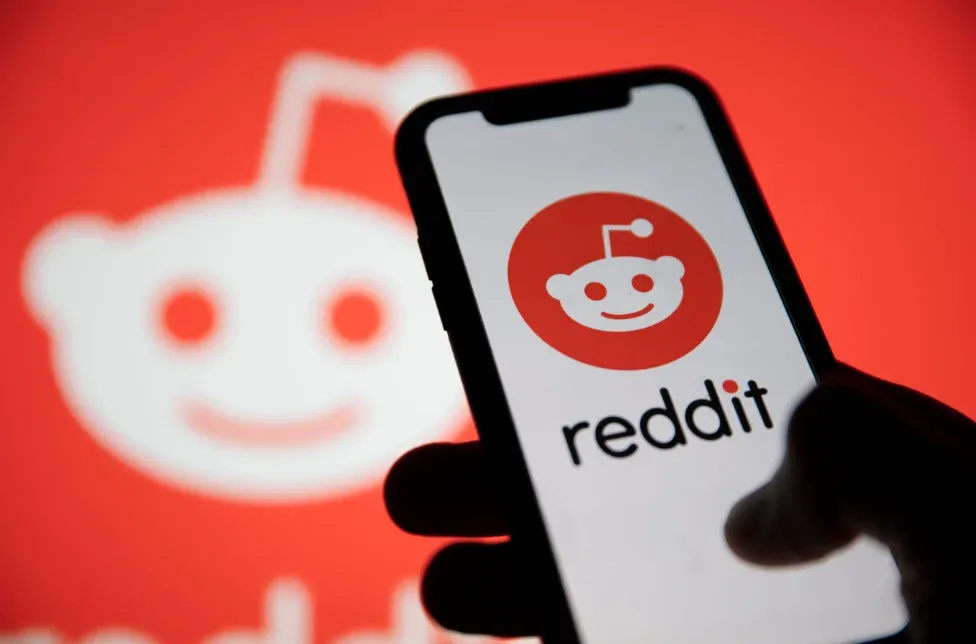
Dear Studio Fam,
This week's theme is risk. First we review the platform risk startups face when they build their product on top of someone else's. Then we take a look at how legacy car makers are simultaneously de-risking their growth into the EV market by embracing their biggest competitor's technology, while stacking themselves with long term risk of depending on that competitor. We also bring you an update from the world's biggest ride sharing app, and how it's taking a risk of alienating its customers with intrusive advertising. And finally we bring you a preview from Studio's upcoming Knowledge Base to help startup founders understand the risk tolerance of different types of investors.
Reddit Mods Revolt Over API Rules, Ignore Platform Risk

Thousands of sections of social news site Reddit were shut down this week by their moderators in protest of new API pricing rules planned for the service. Unlike other social media sites that rely primarily on algorithms to decide what content to show users, Reddit has long maintained a community-led approach to content curation across its millions of “subreddits.” Each subreddit is maintained and moderated by unpaid volunteers who maintain editorial control over the content and comment of their subreddit.
The protest was set off by the announcement last month by Reddit CEO Steve Huffman that third-party apps such as Apollo must start paying for API access that until now has been completely free. Huffman claims that the new API pricing simply passes on its own hosting costs to third-party apps, and that only third-party apps with monetization features (ie, apps that are making money from Reddit for free) must pay the new API fees. In Apollo’s case, the yearly API bill would likely exceed $20 million, effectively killing Apollo.
The existential threat to Apollo may sound unreasonable but not to anyone with a modicum of experience with the history of platform risk, a well documented vulnerability of any product that is entirely dependent upon someone else’s product.
General Motors, EVGo, & Blink Surrender To Tesla’s Charging Standard

General Motors announced this week that it will join rival Ford in adopting the Tesla North American Charging Standard (NACS) starting with its All Electric Chevy Blazer in 2024. A number of third party charging networks, including EVGo & Blink, have also thrown in the towel on their CCS-adapters and will be incorporating NACS in the near future. While this may seem relatively unimportant, just consider how badly Samsung would have to be doing to agree to build Apple Lightning ports into its smartphones. This leaves Chrysler as the only legacy American automaker yet to adopt NACS. No word yet from the Japanese manufacturers on their plans for NACS, though Elon Musk would be very happy for Toyota to join.
Uber Is Putting Advertisements Everywhere

Uber, the ride hailing and food delivery giant that has never made a profit, thinks that digital advertising is the future to growth of its business. Coming soon to the Uber app will be full-length video ads that play while you are waiting for your car to pick you up. The contextual power of the ads could be significant, as uber “knows where you are, where you are going, and what you have eaten,” according to Uber advertising executive Mark Grether.
There will also be “journey ads” that play in your Uber app during the ride, and there are plans to install dedicated tablets into select Uber vehicles that will automatically display advertisements to passengers. Digital ads inside of taxi cabs are not new, having been introduced to NYC yellow cabs almost a decade ago by companies such as Creative Mobile Technologies and Verifone.
However Uber may not have learned much from those companies’ implementations of similar ad experiences. Uber intends to make the in-car tablet ads automatically play with sound on, despite this experience being a top complaint received by New York City’s Taxi & Limousine Commission and a top ranking post on Reddit’s “Asshole Design” subreddit. It’s also a funny reversal from previous Uber attempts to stop their drivers from using third-party tablets that do the same thing.
Texas Will Require Parents To OK Kids’ Social Media Use

Texas is the third state to pass legislation designed to protect children from the deleterious effects of social media by requiring tech companies to verify that all users under age 18 have parental consent to do so. After similar laws were passed in Utah and Louisiana, Texas joins a growing group of state governments that have adopted deeply critical stances to regulating Internet use, including age verification rules for pornography sites and explicit bans on targeted advertising to younger users. While there remains a largely political movement aligned against “Big Tech,” many of these reforms are a response to thoroughly researched and well-documented evidence that the rise of social media has driven a surge in youth depression, self-harm, and suicide, particularly among young girls.
Knowledge Base Preview: Understanding Risk Tolerance of Startup Investors
Studio will soon be launching a knowledge base of best practices for our startup and enterprise clients. We’re excited to share with you a preview of our resources for startups navigating the fundraising environment.
Investing is fundamentally the process of judging risk. Whether you are investing in Tesla stock or a pre-product startup, the question is the same: is the risk adjusted return on the investment positive?
The earlier you are in your business, the higher the risk tolerance required for an investor to participate. Once your startup gets going and its pathway to success is more clear, the overall amount of risk is lower. That’s when lower tolerance investors will become interested.
The Founder
You are your company’s first investor. You took a risk to get started. Maybe you quit your job, mortgaged your house, or took a loan against your retirement account. You know that most startups fail so you are clearly open to taking a lot of risk. This is your baseline against which you can judge every other class of investor’s risk.
Friends & Family
These are people that you know. They’re probably not experienced with the business you are starting but that doesn’t matter; they want to invest in you, not a product. Their tolerance for risk is about the same as yours. That’s why they’re willing to invest at such an early stage, and they’re almost always the source of the first capital raised by a startup.
The Angel Investor
Angel investors are special because they invest their own money. Usually angels are independently wealthy founders who exited their own startups, or otherwise successful with their own business. Sometimes they were born rich. But their source of capital doesn’t matter; if you fail, angel investors have nobody to hold them accountable but themselves. This means they will tolerate a lot more risk than other investors and often participate in the earliest stages of a startup And because it’s all their money, they will also tolerate lower returns than other investors. This means that you don’t need a “unicorn” plan to attract the attention of an angel investor.
The Venture Capitalist
Venture capitalists are the whales of the startup funding world. They write big checks with the hopes of even bigger returns. It might sound glamorous to literally spend money for a living but there’s a catch: it’s not their money. Before a VC can invest in your startup, she must first raise a fund from a group of third party investors (usually referred to as limited partners, or LPs). That means if you fail, the LPs get angry. This lowers a VC’s risk tolerance relative to other investors.
VCs also expect high returns on their investments and not just because it makes their LPs happy. VCs get paid mostly on a percentage basis of profits returned to their LPs. This means that you need to demonstrate a plausible pathway to an extremely high rate of return to get the attention of most VCs. Just becoming profitable isn’t good enough. This lowers a VC’s risk tolerance even more, limiting their interest to startups that are well established.

